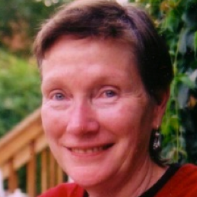Part four in a series on Buddhist meditation awareness practice. Click here for part one, here for part two and here for part three.
To practice prajnaparamita (see article III of Awareness Practice) is to mix mind with space without sliding into nihilistic absorption, without “spacing out.”
To meditate in this way is to rest awareness in space while being wide awake. Words can point to this experience, but the experience is indescribable. Yet it is helpful to know that dwelling on space as a reference point is still dualistic confusion.
Shunyata or emptiness is non-dwelling on anything. Enlightenment is realizing that thoughts and emotions and the world of form are all the play of the mind, appearance-emptiness. We can actually practice this until we are no longer caught in the duality of subject and object, internal and external, I and other. Such concepts are removed through the understanding and repeated experience of emptiness or shunyata.
As Trungpa Rinpoche says, “having thrown everything away, we begin to feel the living quality of peace…(which) has a strong character, an invincible quality, an unshakable quality, because it admits no gaps of hypocrisy.”[1]He goes on to say, “Complete openness is complete victory because we do not fear, we do not try to defend ourselves at all.”
So this openness or emptiness is not sterile, it is also the origin of all the natural enlightened qualities, such as compassion. For when there are no boundaries, compassion naturally arises.
Then we truly wish the “Four Immeasurables” for everyone:
May all sentient beings enjoy happiness and the root of happiness.
May they be free from suffering and the root of suffering.
May they not be separated from the great happiness devoid of suffering.
May they dwell in the great equanimity free from passion, aggression, and prejudice.
The point of practicing awareness is to be open-hearted and open-minded. That is why the Heart Sutra’s exponent of prajnaparamita, Avalokiteshvara, is also the bodhisattva of compassion (see Awareness article III). There is no separation between the experience of spacious openness and post-meditation compassion. If our discursiveness and conflicting emotions are not gradually diminishing, we should question ourselves. Self-reflection is the willingness to see our short-comings and is another valuable form of prajna.
Are we really putting attention on the breath? Are we then relaxing into the space to which the breath takes us? Or are we seduced by every thought? If this is happening, do we remember to look at the mind that thinks? What happens then? Are we recognizing and letting go of habitual patterns? Do we have the motivation and stamina for daily practice?
Such questions wake up practice. We do not need to judge ourselves or give ourselves a hard time for having a hard time. That would be what Trungpa Rinpoche called “double negativity.” But simple self-reflection keeps us honest.
The good news is that every time we return to the breath or remain in the openness of space, we are undoing habitual patterns of wandering and fixating. And even if we only once in a session glimpse the true nature of mind, we are uncovering again that clarity-emptiness, energy-emptiness, awareness-emptiness. And then post-meditation we may discover that we are less fixated and more flexible and available to others.
Trungpa Rinpoche encourages us: “Sudden enlightenment comes only with exhaustion. Its suddenness does not necessarily mean that there is a short cut…Meditation is…fully being in the nowness of this very moment.”
But enlightenment is not usually a do-it-yourself project. A meditation master is essential for mind to mind transmission, which can happen formally or in a casual encounter. This master teacher can be whoever you thoroughly connect with. The sixth patriarch was an illiterate layman, yet Korean, Vietnamese, Chinese, and Japanese Chan and Zen traditions trace back to him.
The present Seventeenth Karmapa says, “Resting evenly in this free expanse that is the mind’s nature is practicing deep insight.”
If we are not able to do so, perhaps we need a meditation master.
[1] VCTR, Cutting Through Spiritual Materialism, ‘Shunyata” chapter.~
Ed: Edith L.
Like elephant Meditation on Facebook
Bonus:






Read 10 comments and reply